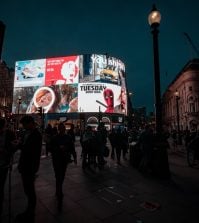US feds can sign on to COVID-19 hazard pay lawsuit; New Zealand public servants ‘fell short on neutrality’: management and workforce news in brief

Global Government Forum’s weekly digest of all the news you need to know but might have missed
US federal officials can join COVID-19 hazard pay lawsuit
A website has been launched to allow US federal government employees join a lawsuit seeking to get hazard pay for working during the COVID-19 pandemic.
The law firm Kalijarvi, Chuzi, Newman & Fitch, P.C. has filed a lawsuit seeking “seeking hazardous duty and environmental differential pay” for federal employees who were exposed to COVID-19 while performing their official duties.
Officials must meet five criteria to qualify, according to the website:
- You were a federal employee;
- You have been exposed to COVID-19 during the performance of your official duties;
- Your position is eligible for hazardous duty and/or environmental differential pay;
- Your position description does not take into account exposure to infectious diseases like COVID-19;
- You have not been paid hazardous duty and/or environmental differential pay for all of your working time in which you were exposed to COVID-19.
The lawsuit seeks a 25% hazard pay differential for general schedule employees and an 8% environmental pay increase for wage grade employees, due to different entitlements these employees have under the law. The General Schedule classification covers the majority of civilian white-collar federal employees (about 1.5 million worldwide) in professional, technical, administrative, and clerical positions, while wage grade is the pay-setting system that covers federal blue-collar labourers and other employees who are paid by the hour.
New Zealand public servants ‘fell short on neutrality’
New Zealand public service commissioner Peter Hughes has ruled that the government’s public housing agency, Kāinga Ora, fell short of expected standards of political neutrality when it published an article about a political candidate.
In a review published earlier this month, the commissioner said Kāinga Ora got it wrong when an article it sponsored on community spirit at its Hobsonville Point development focused on the Hobsonville Point Gets Ready Group, represented by Arena Williams. Williams, who is now a Labour member of parliament, had advised the organization that she was set to announce her candidature in the 2020 general election.
Hughes said Kāinga Ora should not have published the article in the first place and, having done so, should have taken it down the moment Williams announced her candidacy. However, this did not happen and it remained online throughout the 2020 election campaign.
“Kāinga Ora failed to do the right thing when it became aware the person it was to feature in a Kāinga Ora sponsored article was a candidate,” said Hughes, and he said an email suggesting the agency pretend it did not know about Williams’ candidacy was “unacceptable”.
He added: “I expect public service agencies to consider whether it is appropriate for public funds to be used to give positive exposure to a political candidate in this way. Government advertising must always be impartial and free from partisan promotion of government policy and political argument.”
Hughes said Kāinga Ora’s chief executive Andrew McKenzie had initially got it wrong on the issue of political neutrality. The chief executive has since assured him he has taken appropriate action to ensure there will not be a repeat of the incident.
“I’m satisfied the chief executive has owned it, fixed it and learned from it. That is what I expect.”
Vast majority of public servants still working remotely, GGF survey finds
More than three quarters (78%) of public servants around the world are working remotely at least part of the time, as the COVID-19 pandemic prompts long-term changes to the future of work, according to an exclusive survey by Global Government Forum.
The survey, which ran between 26 January and 19 February, gathered nearly 4,000 responses from civil and public servants in 10 countries. It found that 48% of those surveyed work remotely full time while a further 30% work a mixture of remotely and on-site. Only 22% of respondents work solely on-site.
Read the story in full here: Vast majority of public servants still working remotely, GGF survey finds
Moving from awareness to action of disability inclusion
Yazmine LaRoche, the Canadian deputy minister for public service accessibility, has shared lessons on her work to build an inclusive Canadian public service.
LaRoche is working to implement the public service accessibility strategy that aims to bring inclusive practices across 80 departments or agencies and over 250,000 employees and, in an interview with the Disability Debrief newsletter, she highlighted how this requires changing the way that public and civil services work.
“In French, the word is enraciné. It means rooted, part of the fabric,” she said. “That’s what I’m hoping that we will be able to build. I know it takes time and the awareness raising part is hugely important. But often people get stalled at the awareness raising stage and think, okay, we’ve done it. But you haven’t because you haven’t taken the next step, which is embedding it in your culture. There are lots of different expressions for it. We talk about ‘disability confidence’ or ‘accessibility confidence’. It takes time and requires concrete measures.”
You can read the full interview here, and join Yazmine LaRoche at an upcoming Global Government Forum webinar on supporting disabled people into senior roles
April 28 webinar: Tap into your talent: supporting disabled people into senior roles





















